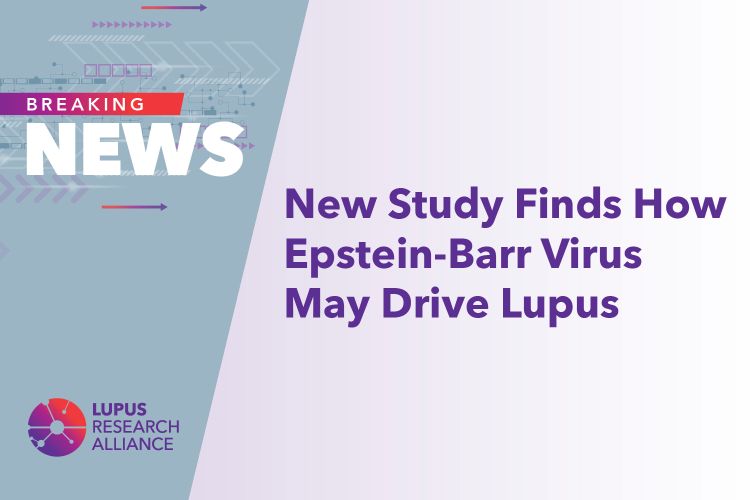A major breakthrough funded by the Lupus Research Alliance (LRA) is offering fresh clarity on something scientists have suspected for years: a powerful connection between the Epstein Barr Virus (EBV) and the development of lupus.
Read the original announcement here: “Lupus Research Alliance Funds Study to Understand Connection between the Common Epstein Barr Virus and Lupus.”
The study, published in Science Translational Medicine and led by Dr. William Robinson of Stanford School of Medicine, explored how EBV, one of the most widespread viruses in the world, may reprogram certain immune cells and contribute to autoimmune disease.
Key Insights from the Study
- EBV infects more than 94 percent of people worldwide, yet only some go on to develop lupus.
- Dr. Robinson’s team discovered that EBV can alter B cells, turning them into “driver” cells that fuel autoimmune activity.
- This LRA funded research supports the theory that EBV may act as a trigger in genetically susceptible individuals.
- Understanding this link may open doors to early detection, prevention, and more targeted treatments for lupus.
- Findings may also benefit other autoimmune conditions with suspected EBV links, including MS and rheumatoid arthritis.
Why This Matters for People with Lupus
For our lupus community here in Colorado, this development reinforces something profoundly hopeful: researchers are making meaningful progress toward solving the mystery of why lupus develops in the first place.
This type of discovery:
- Brings science closer to interventions that prevent lupus from starting, not only managing symptoms.
- Validates the lived experiences of patients who have long suspected infections and immune stressors play a role.
- Strengthens the foundation for future therapies designed to stop lupus at its source.
At Lupus Colorado, we are committed to sharing advancements like this because knowledge brings confidence, connection, and empowerment. Every breakthrough reminds us that a future with better treatments and ultimately a cure is possible.
